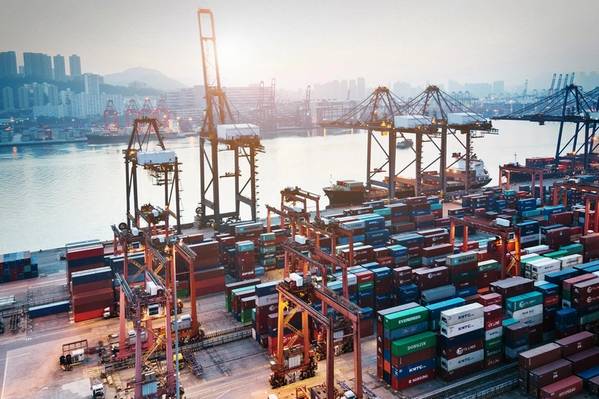
Protect your port with resilient propane backup generators
Ports are crucial to the success of our nation’s critical supply chain, and with increasing productivity demands there is a heightened need for resilient, reliable power sources. According to the American Association of Port Authorities (AAPA), seaports accounted for 26 percent of the U.S. economy in 2018 and continue to grow.
Unexpected power outages are becoming more prevalent as electricity demand increases and the century-old power grid is slow to evolve. In fact, the U.S. experiences more blackouts than any other developed nation.
Ports must continue to operate despite natural disasters, grid outages or other unforeseen circumstances. With that in mind, ensuring port infrastructure can withstand and adapt to change is vital not only to the success of the port, but also the economy, transportation industry and local jobs. Fortunately, propane is a clean, reliable energy source that can power ports across the country in a variety of ways.
Build resiliency with propane power generation
Port authority leaders cannot afford to pause operations when power goes out or extreme weather hits, which is why commercial propane generators, microgrids with propane and portside solutions for cold ironing are a great solutions for port resiliency.
Commercial propane power generation is trusted by hospitals, emergency responders, schools and offices to provide uninterruptable power for electrical loads, even when the electric grid is curtailed or goes down completely. Propane power generation systems are installed with fully automated transfer switching systems to ramp up within seconds to provide power when the electrical grid disruption occurs. Their autonomous design requires little to no involvement from crews to activate or maintain.
Unlike diesel which degrades over time, propane has an indefinite shelf-life which makes it an ideal generator fuel. Additionally, propane is nontoxic so it can be stored above or below ground without risk of contaminating ground or sea water.
Commercial propane power generation can be used daily as auxiliary power, not just for backup power. Shore power, or cold ironing, with propane provides electrical power from the shoreline to a ship while it’s docked, allowing ships to maintain fundamental vessel functions without running auxiliary engines and burning diesel fuel. By incorporating propane power generation, ports alleviate the need for grid-based shore power options and can rest assured that they’re ready for whatever unforeseen challenge strikes.
Propane supports emissions-reducing efforts
The electrical infrastructure of the United States is fragile and unpredictable, which is why individuals and businesses alike are searching for reliable power generation. The issue, however, is that a majority of these generators are diesel and natural gas fueled, which produce high amounts of nitrogen oxide (NOx), sulfur dioxide (SOx) and particulate matter emissions. As a key player in the U.S. distribution chain, ports need reliable power generation that doesn’t negatively impact local air quality.
According to a study from the Propane Education & Research Council (PERC) titled, Power Generation: The Emissions Shifting Problem, 90 percent of recently purchased generators in California and Texas are powered by diesel, which collectively produce annual emissions of 1,000 metric tons (MT) of NOx. If those generators were instead powered by propane, it could significantly improve the air quality. According to PERC’s research, diesel backup generators produce 11.65 g/KWh of NOx emissions and .24 g/KWh of particulate matter, whereas propane generators only produce 1.4 g/KWh of NOx emissions and .03 g/KWh of particulate matter.
Trusted and versatile
Propane usage goes beyond power generation and its versatility reaches to land and sea-side applications. In fact, propane has been trusted by the transportation industry for several decades. It’s backed by some of the most trusted engine and fuel system manufacturers including Cummins, Power Solutions International, Agility and Origin Engines.
Today, propane can be found powering forklifts, port and terminal tractors, light- and medium-duty vehicles, and even small marine vessels.
As demand is continuing to increase and port fleets expand, port operators can rest easy knowing they have true resiliency, security and peace of mind with propane ready to power their operations.
Consider how small changes to a cleaner energy source impact ports for the better. Every day, ships, vessels, barges and boats travel in and out of ports, many of which are powered by high-carbon, dirty fuels. Because of this, air quality in port communities is a significant concern, and using additional emissions-heavy equipment only exacerbates the issue. With propane, ports can not only reliably keep up with the strenuous demand, but can also improve local air quality by mitigating harmful NOx and particulate matter emissions and in areas that are disadvantaged and need better air quality. Propane’s use isn’t just about resiliency and versatility, it is about energy equity. This is why we say propane is “energy for everyone.”
To learn more about propane and its impact on ports, visit propane.com/ports.



